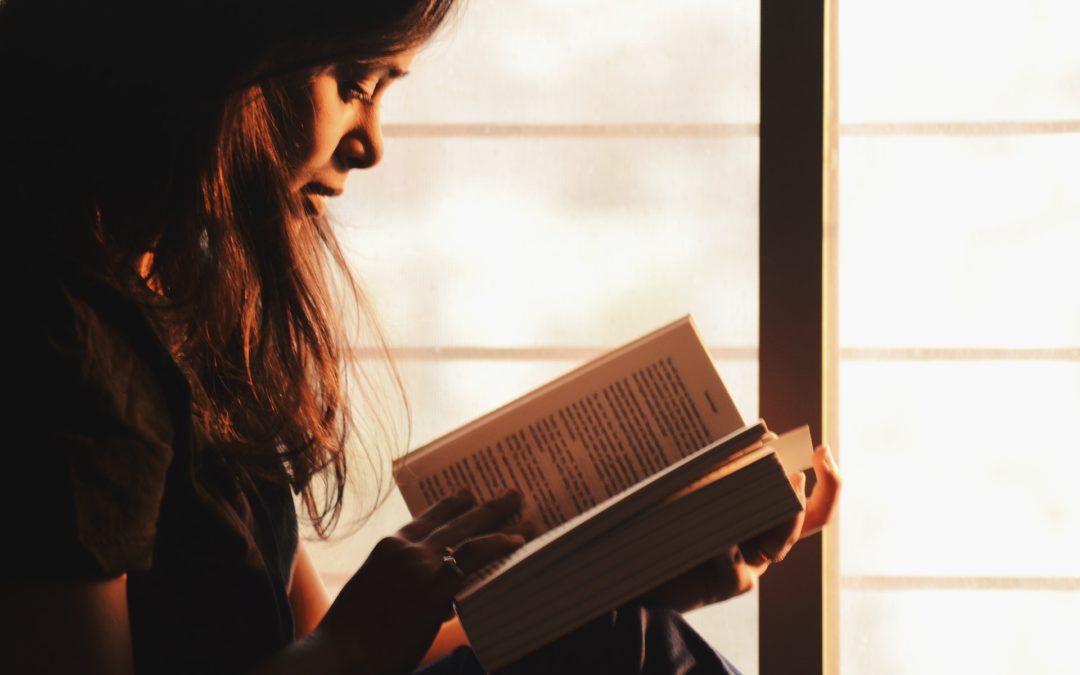“I feel like I’m living in a dystopian novel,” I said to my husband one day in March 2020.
That was when my world, like yours, came to a dramatic halt. A universal shut-down, imposed due to the coronavirus pandemic, became an unprecedented experience for our generation. Practically everything was closed: offices, schools, shops, even churches.
Our reality became so very unreal and—perhaps just as worse—no one could tell where this would lead, how long the shut-downs would last, and how many would die. It all felt surreal, eerie, even apocalyptic.
A couple of months ago, life for the people in Ukraine abruptly changed. Perhaps they now feel as though they live in a dystopian world: their country invaded, lives uprooted and—in some cases—lost, their normalcy and feeling of safety destroyed.
Life can change without a moment’s notice. Which one of us had any practice living in a dystopian society? Is there a kind of training ground for preparing oneself to cope with difficult situations, whether they be a pandemic, warfare, persecution, corrupt government, or all of the above?
Well, yes, I would argue that we do have a training ground available to us … and it’s in the pages of a novel.
Reading as Formative
Of course, many of us read for the sheer pleasure of immersing oneself in some other fictitious world. Reading can become an escape, a diversion from the pains and problems of the present. Simultaneously though, one of the benefits of literature is to enable the reader to experience situations he or she may not have experienced before and, thereby, practice the appropriate virtues and avoid the relevant vices in these circumstances.
As Atticus in To Kill a Mockingbird said, “You never really know a man until you stand in his shoes and walk around in them.” Well, reading a novel is stepping into another person’s shoes, experiencing that character’s trials and triumphs, listening to his or her thoughts and desires. In doing so, we may find inspiration: consider persevering Frodo who carried the burden of the evil ring into the very depths of darkness. On the other hand, we may find a warning, such as the demise of Anna Karenina through her adulterous affair.
Good literature becomes a point of inspiration that we can take back to our everyday reality. We enter the world of the novel, but then those ideas, thoughts, plots, and feelings find their way into our own lives.
Christian Dystopian Fiction
In the midst of the coronavirus restrictions and shut-downs, my husband and I published our debut novel: In the Shadows of Freedom, a Christian dystopian work–the first in a trilogy. We published it during a pandemic, a time that felt very dystopian. Interestingly, one person told me, “The pandemic has ruined the dystopian genre for me.”
Yet we study history so we don’t commit the mistakes of the past. In the same way, we study literature so we don’t commit the mistakes of the future. Herein one can find the importance of dystopian fiction—and by that, I specifically mean Christian dystopian fiction. Dystopian novels, by definition, focus on a world (usually set in the future) where conditions are marked by oppression, terror, and deprivation. Yet, in a Christian dystopian book, the ultimate point is not a world falling apart: it is a God who redeemed the world, regardless of what might be happening at that specific moment in time.
Christian dystopian fiction should not end in depression or despair. Rather, it should shine light in the darkness. No matter how corrupted the government, how widespread the persecution, how dismal the chances for victory, the message of a Christian dystopian novel should help the reader maintain his or her trust that God is ultimately the one in control.
Isn’t that the message we all needed to be reminded of during the pandemic or any other trying season of our life? Our whole life may be uprooted, but God is always a fixed point, our place of refuge and strength.
One of our goals in writing our Christian dystopian trilogy is to inspire and help readers who feel like they are in darkness. In a dystopian world, we want to encourage people to find the light through the supernatural virtues of faith, hope, and love (the themes of the three novels in our trilogy, respectively).
In our books, the United States of the future is controlled by the National Citizens Party, a political party bent on eliminating as many laws and regulations as possible in the name of freedom. It is a very Darwinistic society, where the best rise to the top and those who can’t (the sick, elderly, disabled) are discarded as the “Unfit.” Those who oppose this agenda of radical freedom face persecution. Our protagonist begins a journey (literally and figuratively) to freedom. Yet, as evil as this government turns out to be, our faith reassures us that no one can take away our interior freedom as sons and daughters of God, except through our own sin.
We will publish the second novel in the trilogy this month. Titled A Nation of Tyrants, this book focuses on hope in a dystopian world. We can hope for a better government and better society—and indeed, we should actively work toward that goal. Yet, as Christians, our hope cannot rest in this world, which is not our homeland. This world may sometimes feel dystopian, but God made us for the utopian world of heaven: this is the real foundation of our hope!
So if you find yourself in a dark place, consider picking up a Christian dystopian novel. Walk around in the shoes of a character who similarly struggles, but who also feels God there beside him or her in that struggle. Sometimes the light shines the brightest in the darkest moments. As G.K. Chesterton remarked, “It is only when everything is hopeless that hope begins to be a strength.”


